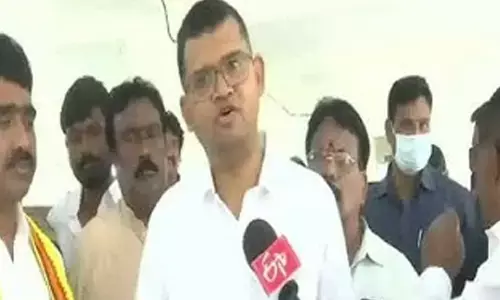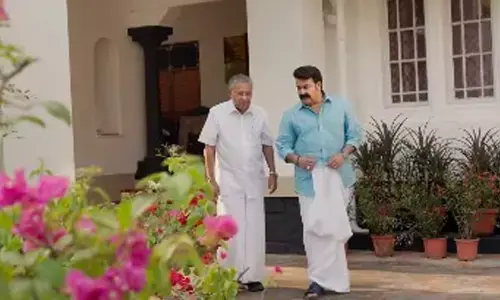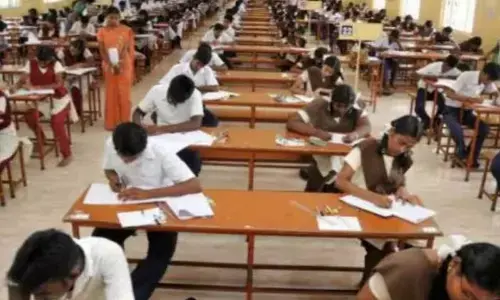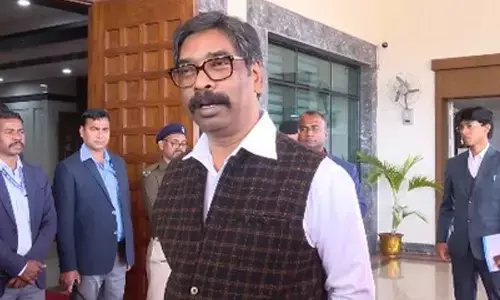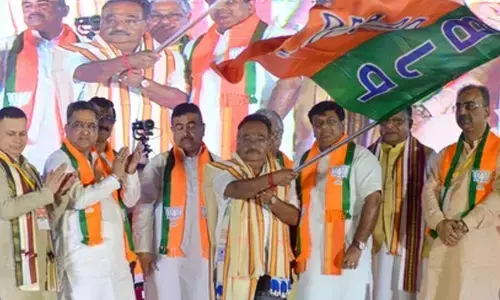Silent warriors of tribal India
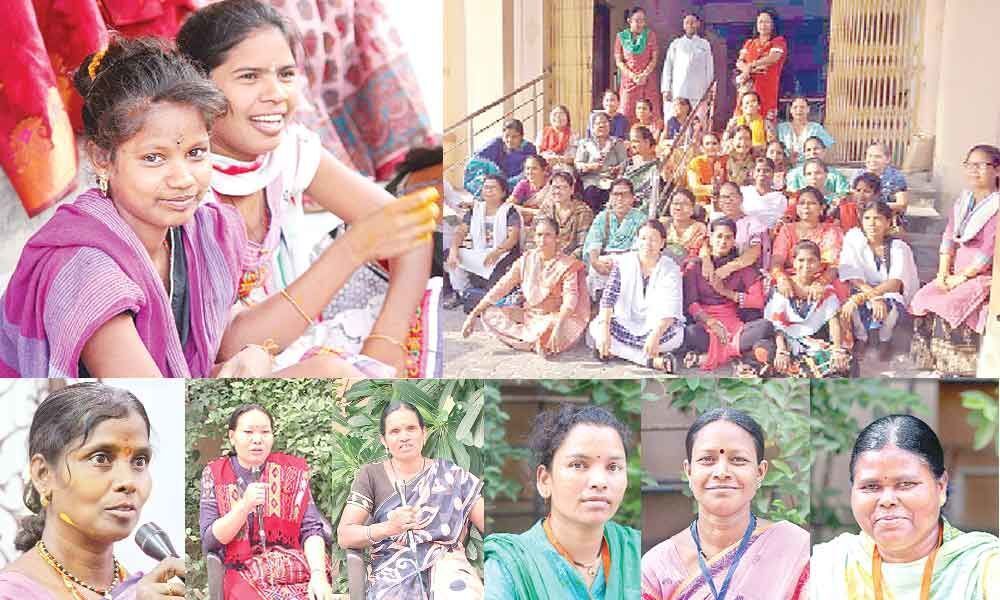
Thousands of tribal women workers across India work to bring education, livelihood and health and make a difference to their own communities, reaching 50,000 villages with 35,000 micro projects
A tribal welfare department official goes on tour to the Bastar region in Chattisgarh.
At the end of the day, as his jeep loses its way in the twilight in the jungle, a tribal woman who is travelling with him, jumps out and tells the driver to switch off the headlights and follow her.
She starts running along the kutcha pathways in the dark and the jeep follows her faint, racing figure until they are back to the road. For five whole kilometres!
This magic guide in the jungle is a member of the Vanavasi Kalyan Ashram and a worker, who runs an education project in the villages of Bastar. And she is as deft in managing large-scale projects as she is leading the way out of dark, dense forests.
She is one of the thousands of workers who are part of a mammoth development exercise across India, focusing on the tribal populations in various states, from Punjab to Arunachal Pradesh, from Bihar to Kerala. For the last 67 years.
This week a hundred such tribal women leaders from across India met in Hyderabad for a national workshop and to share their stories.
On their work in education and livelihood training, self-help groups and viable agriculture, water conservation, prevention of trafficking of young tribal girls. On conflict resolution and rehabilitation. On hostels and health. And on tribal sports and revival of traditional arts and crafts.
"Thirty years ago, I had studied in a Kalyan Ashram hostel and I still remember how our villagers used to run away when they saw a stranger.
We were illiterate, had no potable drinking water, suffered from illnesses and had no access to any of the Government schemes. All that changed now," says Kimudu Acchamma, in charge of the Paderu centre in Visakhapatnam district.
With more than 200 hostels that offer shelter, schooling, health and sports training, Kalyan Ashrams boast of many successful former students in all fields including sports with sportspersons such as Limba Ram and Kavita Raut among notables.
Apart from livelihood training and self-help groups of women, the VKS also takes active part in resource protection and support to farmer and fishermen communities.
"In Purulia district of West Bengal, water is so scarce that it was difficult to have even one crop in a year. But we revived the tanks and helped each farmer dig a small tank in his land so that groundwater was charged, and they could grow fish there.
And the farmers could actually go for two crops," explains Malati Soren from Purulia. "The tribal belt there was very backward. In fact, there was a village, which had just one boy who could read and write and he was in a hostel in the town.
The entire village waited for him to come home for holidays so that he could sit and read all their letters from many months," recalls Beenapani Das, also from West Bengal.
Conflict resolution has been one of the main areas of thrust of the Kalyan groups. "In Assam, in Bastar, Manipur and Arunachal, whenever there was a clash between two tribes, both sides were losers.
We approached both the tribes and brokered. On many occasions, police called women members from our groups to come and cajole the warring tribes," says Madhavi Joshi, country head of the VKA women's groups.
The peace efforts also worked in the Bastar region of Chattisgarh and Gadchiroli in Maharashtra where left extremism became an impediment to the development of scheduled tribes.
"In Gadchiroli, there were fierce encounters between Maoists and the security forces and tribes got caught in crossfire. We were the only one who were allowed to get in the middle, go to the remote areas and speak to the villagers," smiles Jasunda Darro who works in Gadchiroli villages.
"Bastar had a mere 2% literacy among women. Tribal people, especially young people and women faced so much pressure from the extremist groups and they equally suffered due to lack of access to facilities in their own habitations," adds Madhavi Joshi.
Apart from night schools, free coaching classes, reading rooms, VKA also runs Ekal Pathshalas, single-teacher schools that have young girls from the community, teaching primary school kids and dropouts, often depending on song and story to convey lessons to toddlers. Ekal school teachers sometimes walk kilometers to reach the schools assigned to them.
Terrain is one of the most challenging factors of their work, but workers, such as Omem Bayor of Arunachal Pradesh climb up mountains to reach tribal villages near Tibet, China borders to reach the last tribal woman.
Prevention of trafficking of young girls has been seen as a crucial intervention in some states such as the North east and West Bengal where the kids are sent off across the borders and are never seen again, the women SHGs have focused on bringing girl children to schools, preventing child marriages.
Elsewhere in the bustling metro of Kolkata, Usha Agarwal builds bridges between urban denizens and the tribal areas, organizing Vana Yatras and offering marketing avenues for the tribal crafts.
The venue for the Vanavasi Kalyan Ashram national meet echoes with songs, in Santhali and Gond, in Marathi and Bengali, sung by women, each of whom is a driving force in her own community.
"It is our effort to preserve our music and dance and we interact with old people and document legends, stories, songs and poems and teach them," says Donshinlu Golmei from Manipur. "We have discovered many lost gems and many tribal festivals," adds Nayana Gamit from Gujarat.
The work that these women do is mostly voluntary, except for a few full-time workers who are often products of the hostels themselves.
And unknown to the rest of the world, their energy courses through the veins of tribal India, revitalizing whole communities, bridging development gaps and ensuring their holistic development.



